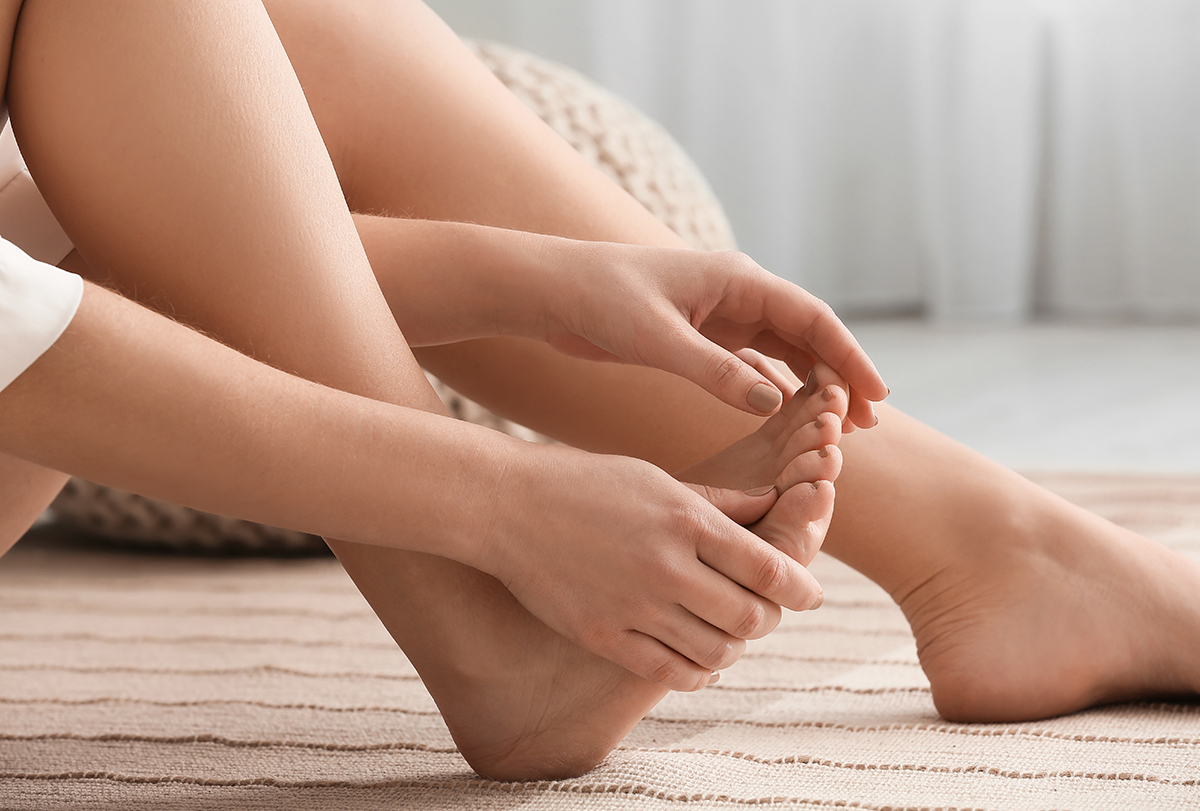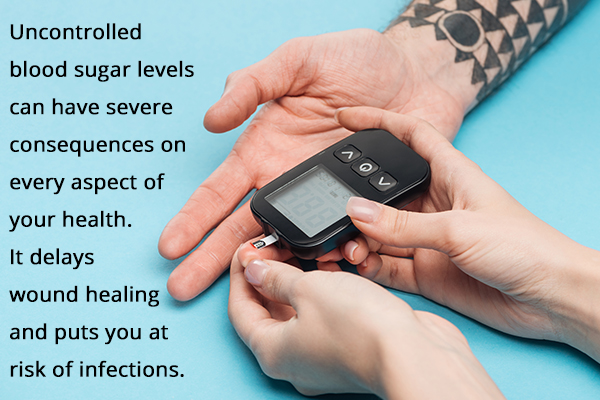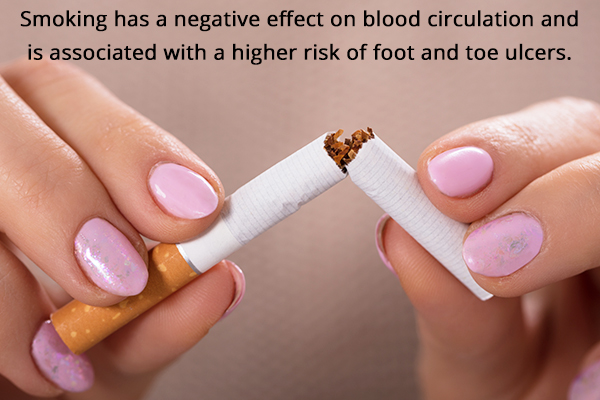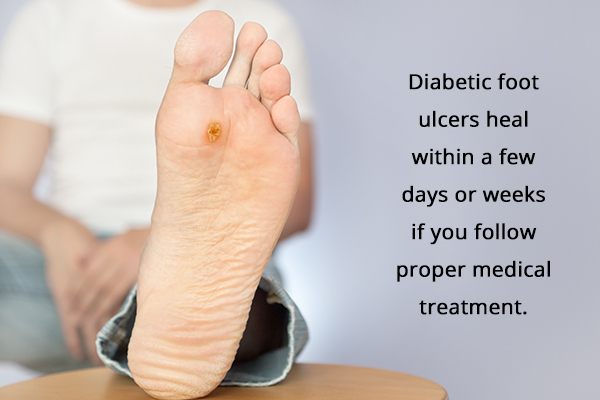In this article:
Diabetes is a metabolic disorder that causes an increase in blood glucose levels.

Chronically high blood sugar levels can damage the nerves and blood vessels of your body, especially in the lower limbs. Hence, people with diabetes are at risk of developing foot ulcers, toe and foot infections, gangrene, and other complications. This may lead to serious consequences and even amputation. (1)
According to several research studies, people with diabetes need to be particularly concerned about proper foot care and hygiene to avoid these circumstances. (2)
If you or anyone you know suffers from diabetes, don’t worry just yet. Most of these complications are completely avoidable if you look after your feet properly.
Here are a few essential foot care tips you can use to protect your feet and prevent ulcers and infections. (3)(4)
Foot Care Tips for Diabetics
These are the most useful foot care practices recommended by doctors:
1. Inspect your feet daily
If you have diabetes, it is necessary to check your feet thoroughly every day. Examine the gaps between your toes, soles of the feet, and nails, and visit your doctor to get proper treatment if you notice a wound or abnormality.
Do this task at a specific time every day (such as at bedtime or just after you shower) so you can remember it. (5)
2. Wear well-fitting shoes and socks
Make sure to wear shoes and socks that are the correct size for your feet. Do not wear shoes that feel uncomfortable or can leave you with a shoe bite.
This is particularly important for people with diabetic neuropathy (a condition in which poor blood circulation to the feet causes loss of sensation). Diabetic neuropathy sufferers are unable to feel the pain of a shoe bite, which may lead to wound negligence and infection. (5)
3. Control your blood sugar level

Diabetes is a chronic condition and is unlikely to go away. It is important to learn to live with diabetes and manage your blood sugar levels as well as you can with the help of medicines, lifestyle changes, and diet.
Uncontrolled blood sugar levels can have severe consequences on every aspect of your health. It delays wound healing and puts you at risk of infections. (6)
4. Wash your feet
Use warm water to wash your feet once or twice a day. Doing so helps keep them clean and removes all dirt and pathogens.
Make sure to dry up properly afterward and apply a mild moisturizer to the soles and top of your feet (but not in the gaps between your toes).
5. Never go barefoot
Wear your shoes whenever you step out of your home. Even when indoors, try to keep your feet covered by wearing socks. (7)
6. Ensure proper blood supply
Try to increase the blood supply to your legs and feet by walking for at least half an hour every day. Physical activity boosts blood supply to the feet and helps prevent diabetic neuropathy.
7. Avoid smoking

Diabetic patients who smoke tend to have uncontrolled blood sugar levels. Smoking also has a negative effect on blood circulation and is associated with a higher risk of foot and toe ulcers. (8)
8. Cut your nails carefully
Avoid toenail injuries by being extremely careful when trimming your nails. This helps prevent ingrown nails and chipping of the skin.
9. Never try to treat a foot wound by yourself
Make sure to visit your diabetologist or a podiatrist if you notice any blisters, corns, or calluses on your feet. They will prescribe the proper treatment for it and also ask you to monitor your blood sugar levels and keep them under control, especially till the wound heals. (9)
10. Opt for diabetic footwear
There are several options for diabetes-friendly footwear nowadays. You can look for it in your nearest medical store or at an orthotic footwear store.
Diabetic Foot Risks
Diabetes can increase your risk factors for a number of foot conditions such as ulcers, dry and cracked skin, corns, and bacterial and fungal infections.
In severe cases, untreated wounds can get infected and lead to gangrene (tissue death). Gangrene is a serious condition that can lead to toe or foot amputations and even sepsis. (10)
Most-Asked Questions
Do diabetic foot ulcers ever heal?

Yes, diabetic foot ulcers heal within a few days or weeks if you follow proper medical treatment. (11)
What are the symptoms of diabetes and foot problems?
Symptoms of diabetic foot problems are tingling or burning sensation in the feet and pain or loss of sensation in the lower legs. (12)
What can I do to keep my feet healthy?
Follow the tips given above and routinely undergo a proper examination by a podiatrist to avoid foot complications. (13)
Final Word
Diabetes is a lifelong condition and can affect your everyday life in a number of ways. It can be especially detrimental to your foot health, and lower limb amputations among diabetic patients are common. It is important to care for your feet properly to prevent ulcers and infections.
Follow the tips given above, and visit a podiatrist at least once or twice a year for a foot examination.
- Was this article helpful?
- YES, THANKS!NOT REALLY


